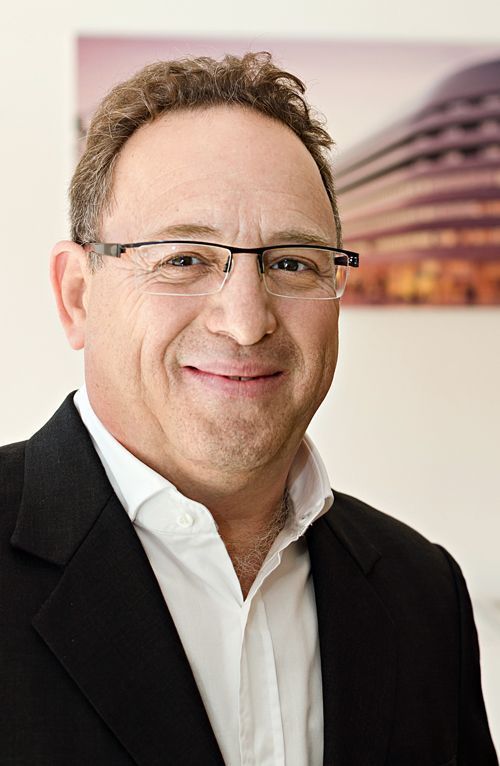Anna Pakulniewicz ‘Eurobuild Central & Eastern Europe’: How do you choose the site or location for your projects? Do you have to “feel” the city before you start the work?
Asaf Gottesman, architect, Gottesman–Szmelcman Architecture: I think it is crucial to get to know the environment where the building will stand. For example, it is important to know whether the city I am working in is a structurally and politically correct place. What are the demographics, the economic, social and cultural nature of the place? The geographic location, the orientation of the site, the climate, the surrounding landscape and the cityscape are all critically important. Whether there is in place a well-structured and effective administration where the legal framework is in order.
Are your designs always tailor-made for a specific location, in that they take into consideration the local architecture, the urban planning and the history – or is it more about the





























































